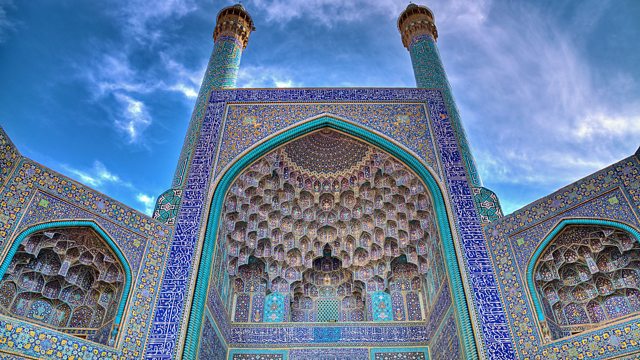Al-Farabi
In a series about key thinkers and achievements from the Islamic Golden Age, Professor Peter Adamson discusses the great Muslim philosopher Al-Farabi.
In a major series for Radio 3, we rediscover some of the key thinkers and achievements from the Islamic Golden Age. The period ranges from 750 to 1258 CE and over twenty episodes, we'll hear about architecture, invention, medicine, innovation and philosophy.
In the final essay in this first set of ten essays, Professor Peter Adamson reflects on the magnitude of Al-Farabi's contribution to philosophy in the Islamic Golden Age. Al-Farabi studied and taught amongst the Christians of the Baghdad school, and later went to Syria and Egypt, dying in the middle of the 10th century in Damascus. His writings reflect the agenda of the Baghdad school: he wrote commentaries on Aristotle, concentrating on the logical works so prized by the school founder Matta. But Farabi seems to have had a more ambitious aim than his colleagues did. He wanted not just to elucidate Aristotle, or to press philosophical ideas into the service of religion but to integrate all branches of philosophy into a single, systematic theory.
Producer: Mohini Patel.
Last on
More episodes
Broadcast
- Fri 6 Dec 2013 22:45成人快手 Radio 3
Death in Trieste
Watch: My Deaf World
The Book that Changed Me
Five figures from the arts and science introduce books that changed their lives and work.
Podcast
-
![]()
The Essay
Essays from leading writers on arts, history, philosophy, science, religion and beyond.





